Today, on Tuesday, 23 March is Pakistan’s National Day, marking a resolution that the country became the world’s first Islamic Republic on 23 March 1956.,
The establishment of the Islamic Republic of Pakistan was due to the persistence of the struggle of Muhammad Ali Jinnah and all other Muslim figures who firmly told the British Government and the Congress Party that they wanted to form a provisional government, separate from the Hindu government in India. At that time Pakistan and India were one country.
Ali Jinnah boycotted the session of the Constitutional Council in 1946. Political conditions got worse due to the fighting between Hindus and Muslims made Muslims demand the establishment of the Islamic State of Pakistan, and finally the Islamic Republic of Pakistan was established.
The country which is adjacent to Afghanistan and Iran has a lot of history in the past. Several major kingdoms had existed in the region. One of them is the famous Mughal dynasty with the city of Lahore as the center of its government. Lots of historical buildings from the Mughal empire with their distinctively Islamic architecture. One of them is the Badshahi Mosque which was built in the 17th century AD.
Also Read: Sheikh Muhammad Amin al-Husseini: The Palestinian Mufti in Indonesia’s Independence History
Pakistan is also famous for its delicious variety of dishes. Dishes in the form of processed meat, curries, mixed with special spices. One example of a typical dish is Biryani. A typical dish in the form of rice with mutton or chicken mixed with various spices, potatoes, and green chilies. In addition, there is a famous drink, namely Chai; Pakistani tea drink mixed with milk and spices.
Then, what about the residents. Pakistanis have a culture that is wrapped in Islamic values with distinctive Eastern customs. The people of Pakistan are very friendly and respect the guests. Smiles, salam, and greetings have become a habit of local residents to their guests.
Memories of Indonesia-Pakistani Togetherness
Indonesia has an “emotional” bond with Pakistan. From the era of the independence struggle until now, this relationship has been maintained. Why? If we look at the history of Indonesia’s struggle for independence, in 1949, around 600 Pakistani military personnel who were originally part of the Allied forces, chose to defect and join the Indonesian fighters after knowing that those who would be attacked were people of their own faith (Islam). The enthusiasm of the Pakistani army was increasingly unanimous in defending the Indonesian nation after hearing the call of the then Pakistani revolutionary figure, Muhammad Ali Jinnah (leader of the Muslim League), to support the Indonesian struggle.
Also Read: Celebrating 200th Java War: Novelty Spirit of 2013 Memory of The World
In recognition of the Muslim soldiers from Pakistan, at the celebration of Indonesia’s independence on August 17, 1995, Indonesia gave the Independence War Awards to former Pakistani soldiers who were still alive and gave the highest award, namely the Class 1 Adipurna Star to the Father of the Pakistani Nation, Muhammad Ali Jinnah.
On the other hand, Indonesia is also noted to have a major role in Pakistan by sending the Indonesian Navy along with submarines and complete weapons to secure Pakistani waters during the conflict with India in 1965. At that time, Indonesia’s military strength was estimated to be the strongest in the southern hemisphere. This Indonesian support taught in elementary and junior high schools in Pakistan.
The level of trust of the Pakistani people in Indonesia is very high, and vice versa. In a survey released by the BBC World Service news agency in 2017, 38 percent of Indonesians (the 2nd highest in the world) have a positive view of Pakistan.
Indonesia and Pakistan are two countries with a majority Muslim population. If the Muslim population of Indonesia and Pakistan are combined, the figure will reach a quarter of the total population of Muslims in the world. If Indonesians meet Muslims in Pakistan, it is no wonder that there are those who say “Akhi” (my Muslim brother), while shaking hands tightly or even hugging each other, of course between men or men, not between men and women.
Also Read: History, Islam, and the Culture of the Kazakhstan: Abai as a National Inspiration
The Hope for Further Cooperation
During the meeting between Imaamul Muslimin Yakhsyallah Mansur and the Pakistani Ambassador to Indonesia, Muhammad Hassan on Monday 22 March at the Pakistani Embassy, the Ambassador hoped that Indonesia could play a bigger role in solving the Kashmir crisis.
“Indonesia as a large country, the fourth most populous in the world, is part of the association of countries with advanced economic powers (G20) and is known to be consistent in the struggle to support an oppressed nation like Palestine, then Indonesia’s voice will be heard and paid attention to by the international community.,” said Ambassador Hassan.
Meanwhile, Imaam conveyed that in the future, the relationship between Indonesia and Pakistan must be more intensive and mutually beneficial, based on the spirit of ukhuwah Islamiyah (the spirit of brotherhood in Islam) as brothers in faith and in arms.
Also Read: Boycotting Israeli-Affiliated Products: A Moral Stance and a Form of Supporting Justice
If cooperation is based on Ukhuwah Islamiyah, then Allah Subahahu wa Ta’ala will provide His help, bless both of them so that Allah will give blessings and prosperity to both countries.
“Whoever loves each other because of Allah, then Allah will give His help in this world and the hereafter, where no one can provide help but Him,” said Imaam Yakhsyallah.
Imaam Yakhsyallah hopes that the relationship between Indonesia and Pakistan is not only between governments (Government to Government) but also people to people (cooperation between citizens).
As a manifestation of his concern for the Kashmir crisis, which is also the main agenda of the Government of Pakistan, Imaam wrote a book entitled “Burning Kashmir and Its Solution”. The book offers a solution to the Kasmir crisis with a social, educational, and religious approach, not a political approach.
Also Read: 77 Years Since Nakba, Palestinian Population Grows Tenfold
In the field of education, there are currently 218 Indonesian students are studying in Pakistan. Meanwhile, in 2021, Indonesia provides at least 166 scholarships for Pakistani students to experience studying in Indonesia. This shows that the people-to-people relationship between the two countries is quite intense in the field of education. (AT/RE1/P2)
Mi’raj News Agency (MINA)
Also Read: Indonesia Must Do More Than Evacuate, Gaza Needs Us to Act Now






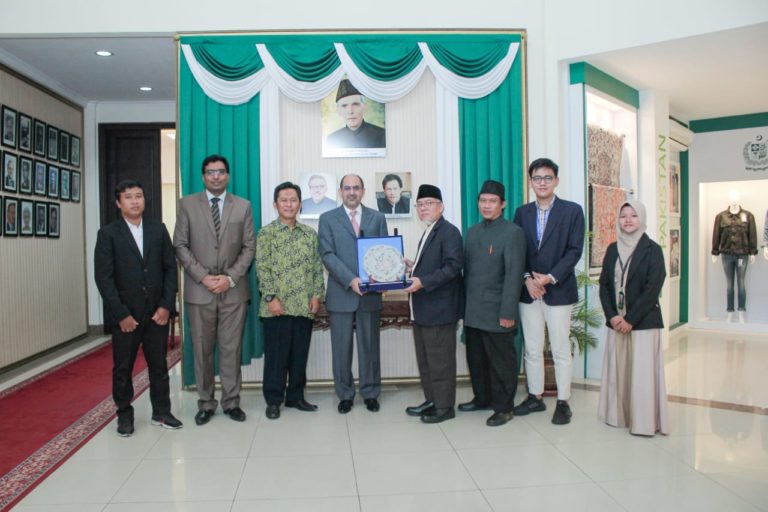

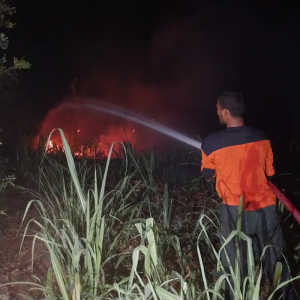

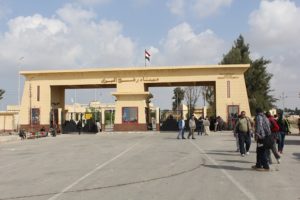

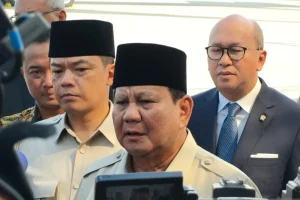
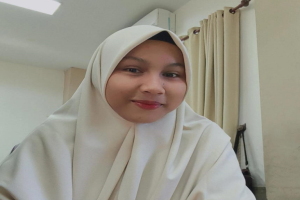


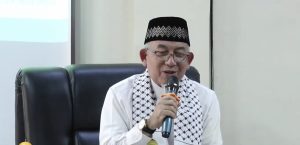

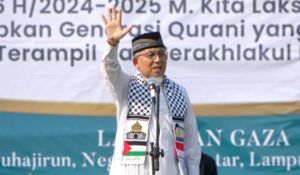

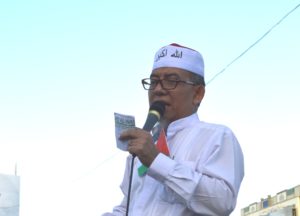






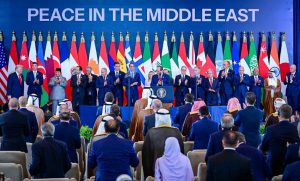
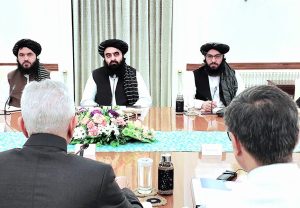
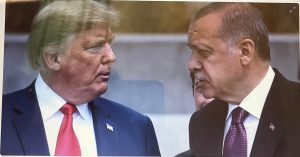

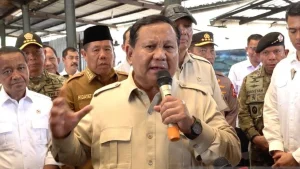



 Mina Indonesia
Mina Indonesia Mina Arabic
Mina Arabic